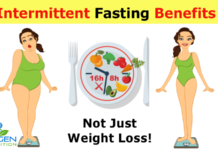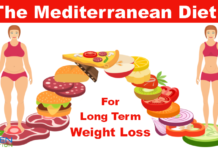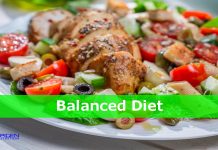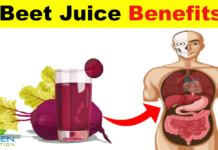Unless you are on some form of restrictive eating plan, breakfast will probably be your most important meal of the day.
Eggs are considered to be one of the main components of a healthy breakfast.
So what really makes this nutritious food such an important part of our daily food intake and how do they benefit our health and daily life?
Poultry eggs, especially chicken eggs are the most commonly eaten type of eggs.
They have been a diet staple for an extremely long time, are affordable, easy to cook and readily within reach most of the time, then to top it off they are jam packed with numerous nutrients.
Egg Facts You May Not Know About
Eggs are known to provide us with a lot of nutrients; but let’s check out the most notable ones and how they help your body.
Eggs are High in Good Cholesterol
Coming across the word “cholesterol” can sometimes be scary, but what a lot of people are not aware of is, there are good cholesterol known as HDL, and bad cholesterol referred to as LDL.
Good cholesterol has many benefits to the body, and it is good to know that eggs contain high amounts of good cholesterol.
Parts of an Egg Contain a Fairly Unknown but Very Important nutrient
The nutrient choline might not be all that well known to a lot of people but it has a great benefit for your body.
Choline helps to build the cell membranes and aids in producing molecules that signal various functions of your brain as well.
In fact 1 large egg contains around 113mg of choline.

Eggs Help Keep Your Muscles Strong
There is protein in eggs that is essential for muscle growth.
Protein is considered to be the main building blocks of the body and also helps in slowing down muscle loss from age and lack of exercise.
Eggs also contain an essential amino acid that helps your body make use of and metabolize the protein you eat.
Eggs Might Help Reduce the Risk of Heart disease
Loads of low carb diets include eggs in their meals, due to the fact that there is only around 1.1 grams of carbs in eggs.
Studies have shown that those who eat eggs while in a low carb diet have lower risk for heart disease.
They Can Help You Keep a Healthy Immune System
Eggs contain the vitamins A and B-12 along with the nutrient selenium that helps in boosting and keeping the immune system healthy.
They Can Help to Reduce Your Appetite
If you are looking for food that can be filling but won’t break the bank, eating a few eggs can help fill that gap.
The protein in eggs can satisfy your hunger and can make you feel fuller for longer.
Make sure to also include sides like a slice of bread complete with maybe a few vegetables and seasonings to spice it up a bit.
Eggs Can Boost Your Energy
Ever thought about why eggs are a staple food at breakfast time?
It’s because they contain the necessary vitamins and minerals to produce energy in your body to function efficiently and optimally throughout the day.
Eggs Can Help to Improve Your Eyesight
Egg yolks have the nutrients vitamin A, lutein, zeaxanthin, and zinc, which are all vital to eye health and can help prevent age-related blindness.
Those antioxidants also protect your eyes from harmful sunlight.
Helps to Sharpen Brain Performance
Vitamin D is hard to get from food but the good old egg can provide this targeted nutrient which can help in brain development by allowing the neurons inside it communicate.
How do You Want Your Eggs?
There are loads of ways to cook eggs, but in everyday use here are the 4 most popular methods
Sunny side up – This is a classic way to cook an egg. Just fry it until you reach your preferred consistency. Keep the yolk slightly runny and dip your toast in the yolk for a tastier experience.
Scrambled – So far, the easiest one to cook your eggs. You can break up the egg and just move it around until it’s cooked the way you want it to.
Omelette – This one’s a bit harder to master but you can definitely play around with it. You can put your favorite toppings or fillings to add more flavor to your dish.
Boiled/Poached – If you want a much healthier way of eating eggs, this is the way to go because it doesn’t need to be cooked in oil.
Get to know your egg facts better
Most large eggs contain around 212 mg of cholesterol and while that sounds intimidating because it’s more than what most food have, it’s not as bad as it sounds.
Eggs give you good cholesterol while helping your body with the bad cholesterol as well.
Pastured eggs are considered to be more nutritious than your average egg.
Remember to also eat the yolks since it stores most of the nutrition your body needs.
There has been a lot of controversy in the past as to how many eggs you should eat each week.
Therefore if you have any health issues then it is advisable you consult with your doctor first before eating too many.
According to the Heart Foundation, they say that…..
“Based on current evidence, the relationship between eggs and heart health is neutral.
This means that they neither increase nor decrease the risk of heart disease in most people. Eggs can contribute to healthy meals and are a healthy snack option compared to discretionary foods.”
If you have Type 2 Diabetes or high cholesterol, they recommend that you eat less than 7 eggs per week.

































